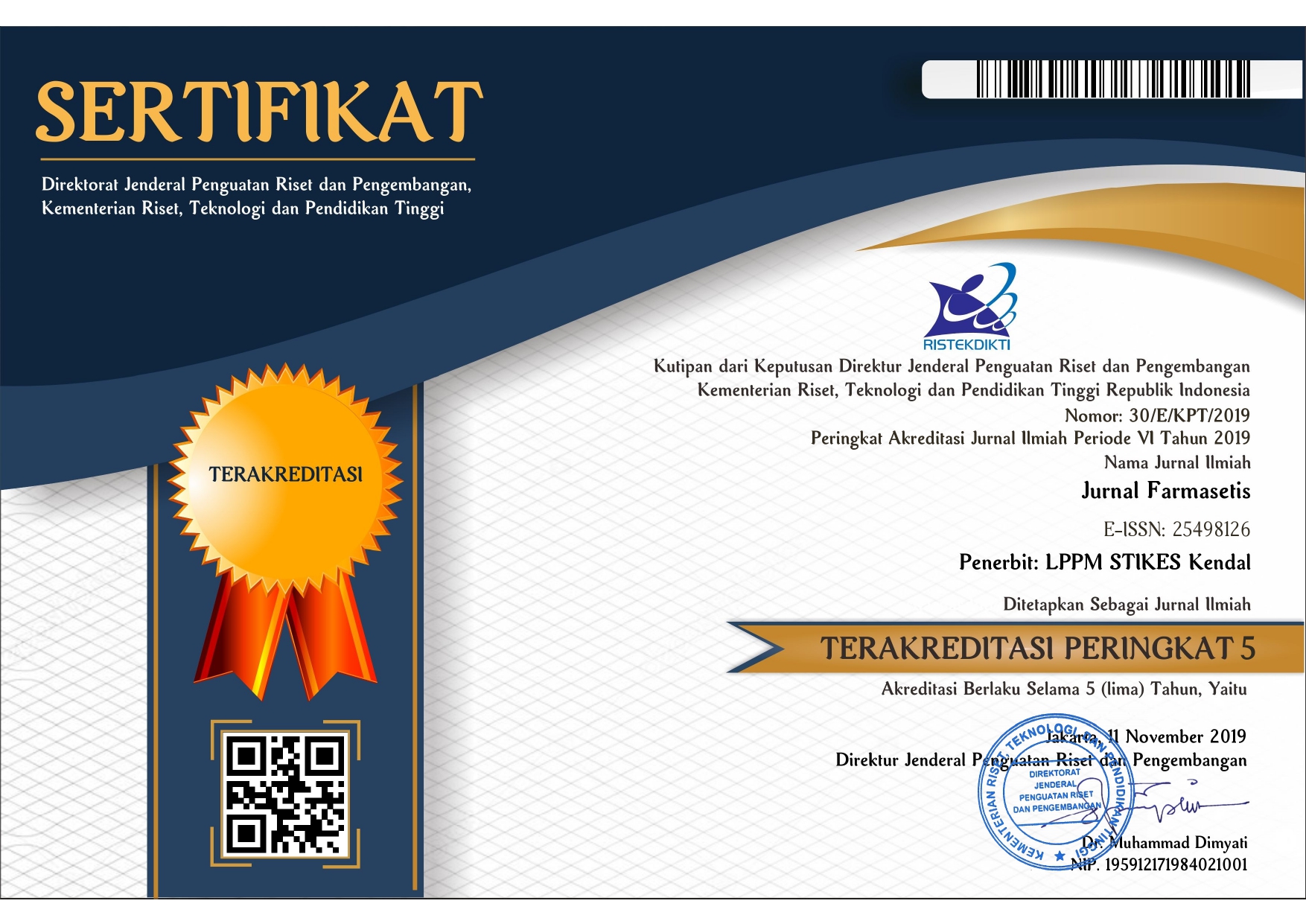Studi dan Tatalaksana Terkait Penyakit Cacar Monyet (Monkeypox) yang Menginfeksi Manusia
Keywords:
cacar monyet, penyakit, tatalaksana, virusAbstract
Cacar Monyet disebabkan karena virus monkeypox (Orthopoxvirus, Family Poxviridae) ditemukan pada tahun 1958 di Denmark. Di Indonesia, kasus monkeypox pertama telah diketahui bahwa satu warga Indonesia terkonfirmasi positif cacar monyet (monkeypox). Metode yang digunakan adalah metode komparatif, literature review dikumpulkan dari 11 sumber dengan kata kunci “Cacar Monyet” dan “monkeypox”. Gejala awalnya yaitu demam, sakit kepala, dan nyeri punggung serta otot, lemas, ruam. Saat ini, belum adanya pengobatan yang tepat dalam kasus ini, namun masih mampu diatasi. Maka, perlu adanya studi dan tatalaksana seperti informasi lebih lanjut terkait penyakit cacar monyet, artikel ini bertujuan untuk memaparkan studi dan informasi agar masyarakat lebih mudah memahami. Adapun data dan sumber tinjauan ini terbukti bahwa informasi yang berkaitan dengan cacar monyet (monkeypox) sangat terbatas.
References
Adler, H., et. al. (2022). Clinical features and management of human monkeypox: a retrospective observational study in the UK. The Lancet Infectious Diseases, 22(8), 1153–1162. https://doi.org/10.1016/S1473-3099(22)00228-6
Bunge, E. M., Hoet, B., Chen, L., Lienert, F., Weidenthaler, H., Baer, L. R., & Steffen, R. (2022). The changing epidemiology of human monkeypox—A potential threat? A systematic review. PLoS Neglected Tropical Diseases, 16(2). https://doi.org/10.1371/journal.pntd.0010141
CDC. (2022, September 15). Treatment Information for Healthcare Professionals. U.S. Department of Health & Human Services.
Kemenkes RI. (2022a, August 20). Kasus Monkeypox Pertama di Indonesia Terkonfirmasi. Sehat Negeriku - Biro Komunikasi & Pelayanan Publik Kementerian Kesehatan RI.
Kemenkes RI, 2022. (2022b). PENYAKIT MONKEYPOX. http://infeksiemerging.kemkes.go.id
Li, D., et.al. (2017). Evaluation of the genexpert for human monkeypox diagnosis. American Journal of Tropical Medicine and Hygiene, 96(2), 405–410. https://doi.org/10.4269/ajtmh.16-0567
Lukito, J. I. (2019). Tatalaksana Monkeypox. https://www.who.int/en/news-
Maksyutov, R. A., Gavrilova, E. v., & Shchelkunov, S. N. (2016). Species-specific differentiation of variola, monkeypox, and varicella-zoster viruses by multiplex real-time PCR assay. Journal of Virological Methods, 236, 215–220. https://doi.org/10.1016/j.jviromet.2016.07.024
Parker, S., & Buller, R. M. (2013). A review of experimental and natural infections of animals with monkeypox virus between 1958 and 2012. In Future Virology (Vol. 8, Issue 2, pp. 129–157). https://doi.org/10.2217/fvl.12.130
Petersen, E., et.al. (2019). Monkeypox — Enhancing public health preparedness for an emerging lethal human zoonotic epidemic threat in the wake of the smallpox post-eradication era. In International Journal of Infectious Diseases (Vol. 78, pp. 78–84). Elsevier B.V. https://doi.org/10.1016/j.ijid.2018.11.008
Quiner, C. A., et. al. (2017). Presumptive risk factors for monkeypox in rural communities in the Democratic Republic of the Congo. PLoS ONE, 12(2). https://doi.org/10.1371/journal.pone.0168664
Reynolds, M. G., McCollum, A. M., Nguete, B., Lushima, R. S., & Petersen, B. W. (2017). Improving the care and treatment of monkeypox patients in low-resource settings: Applying evidence from contemporary biomedical and smallpox biodefense research. In Viruses (Vol. 9, Issue 12). MDPI AG. https://doi.org/10.3390/v9120380
Rizk, J. G., Lippi, G., Henry, B. M., Forthal, D. N., & Rizk, Y. (2022). Prevention and Treatment of Monkeypox. Drugs, 82(9), 957–963. https://doi.org/10.1007/s40265-022-01742-y
Russo, A. T., Grosenbach, D. W., Chinsangaram, J., Honeychurch, K. M., Long, P. G., Lovejoy, C., Maiti, B., Meara, I., & Hruby, D. E. (2021). An overview of tecovirimat for smallpox treatment and expanded anti-orthopoxvirus applications. In Expert Review of Anti-Infective Therapy (Vol. 19, Issue 3, pp. 331–344). Taylor and Francis Ltd. https://doi.org/10.1080/14787210.2020.1819791
Soheili, M., Nasseri, S., Afraie, M., Khateri, S., Moradi, Y., Maryam Mahdavi Mortazavi, S., Gilzad Kohan, H., Gastroenterology Fellowship, P., & Kohan, G. (2022). Monkeypox: Virology, Pathophysiology, Clinical Characteristics, Epidemiology, Vaccines, Diagnosis, and Treatments. In J Pharm Pharm Sci (www.cspsCanada.org) (Vol. 25). www.cspsCanada.org
Stern, D., Olson, V. A., Smith, S. K., Pietraszczyk, M., Miller, L., Miethe, P., Dorner, B. G., & Nitsche, A. (2016). Rapid and sensitive point-of-care detection of Orthopoxviruses by ABICAP immunofiltration. Virology Journal, 13(1). https://doi.org/10.1186/s12985-016-0665-5
WHO. (2022). Monkeypox. WHO.
Downloads
Published
How to Cite
Issue
Section
License
Copyright (c) 2022 Marisah Marisah, Salman Salman

This work is licensed under a Creative Commons Attribution-NonCommercial-NoDerivatives 4.0 International License.






